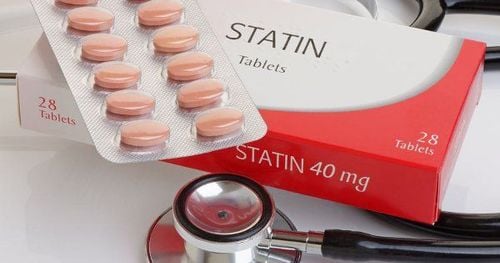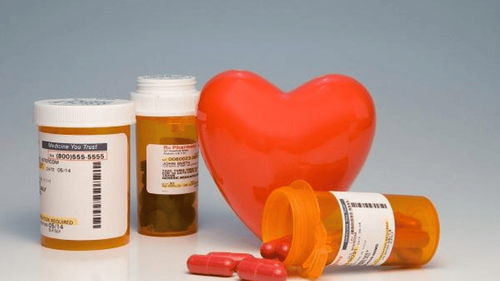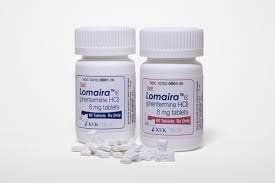This is an automatically translated article.
Article written by resident doctor Trinh Ngoc Anh - Department of General Internal Medicine - Vinmec Times City International Hospital
There is a close relationship between diabetes and cardiovascular disease. Cardiovascular disease is the leading cause of death in patients with diabetes. The relative risk of cardiovascular death in adult diabetic patients is 1 to 3 times higher in men and 2 to 5 times more likely in women than in those without diabetes.
In the US, cardiovascular mortality in adult diabetics (over 18 years of age) is 1.7 times higher than in patients without diabetes, mainly due to stroke and myocardial infarction. . This risk is present in both men and women.
1. What is the relationship between diabetes and cardiovascular disease?
In patients with diabetes, prolonged high blood sugar damages blood vessels and nerves (these nerves supply your blood vessels as well as your heart). The longer the duration of diabetes, the higher the risk of cardiovascular disease. Patients with diabetes tend to develop cardiovascular disease at a younger age than those without diabetes.
However, if you manage your diabetes well, you can significantly reduce your risk of cardiovascular diseases.
2. Risk factors for increased cardiovascular disease in patients with diabetes
2.1 Smoking
Smoking increases the risk of developing cardiovascular disease. If you have diabetes, the most important thing is to stop smoking, as both diabetes and smoking cause narrowing of blood vessels. Smoking also increases the risk of other long-term complications such as lung cancer. Smoking can also damage blood vessels in the legs, and increase the risk of lower extremity infections, ulcers, and amputations.

Thuốc lá làm gia tăng bệnh lý tim mạch ở bệnh nhân đái tháo đường
2.2 Hypertension
Blood pressure is the pressure the blood exerts on the walls of the arteries. If you have high blood pressure, your heart has to work harder to pump blood. High blood pressure can overload the heart, damage blood vessels, and increase the risk of heart attack, stroke, eye and kidney problems.
2.3 Dyslipidemia
Common is an increase in 'bad' blood lipids including: Cholesterol, Triglyceride, LDL-cholesterol; and reduce the 'good' blood fat, HDL-cholesterol.
LDL-cholesterol is the main cause of plaque - one of the causes of narrowing and occlusion of blood vessels - when present in high concentrations in the blood for a long time; Therefore, high levels of LDL-cholesterol increase the risk of cardiovascular disease.
Another form of blood fats - Triglycerides - can also increase heart disease when blood levels are higher than recommended.
2.4 Obesity and belly fat
Being overweight and obese can affect the effectiveness of diabetes treatment and increase the risk of many health problems, including cardiovascular disease and high blood pressure. If you are overweight, a healthy, low-calorie diet will help lower your blood sugar and reduce your need for medication.
Too much belly fat around the waist, even if you're not overweight, can increase your chances of developing cardiovascular disease. Too much belly fat if you measure your waist:
More than 100 cm for men More than 80 cm for women

Béo phì làm tăng nguy cơ mắc bệnh tim mạch
2.5 Family history of cardiovascular disease
Your risk of cardiovascular disease will increase if you have one or more family members (especially first-generation relatives such as parents, siblings) with cardiovascular disease before age 50.
3. How to reduce cardiovascular complications in patients with diabetes?
3.1 Apply the ABCs of diabetes management
A is the A1c test: The A1c test measures your average blood sugar over the past 3 months. This is different from checking your blood sugar daily. The higher the A1c, the higher your blood sugar level during the past 3 months. High blood sugar levels can damage the heart, blood vessels, kidneys, feet, and eyes.
The A1c goal for many people with diabetes is ≤ 7%. Some patients with better control may have an A1c target ≤ 6.5%. Ask your doctor about your A1c goal.
B is blood pressure: The blood pressure goal for most people with diabetes is less than 140/90 mmHg. Ask your treating doctor what your blood pressure goal should be to best manage your own blood pressure
C is cholesterol: Ask your treating doctor what your cholesterol goal is. If you're over 40, you may need to take medication such as a statin to lower your cholesterol and protect your heart. Some patients with very high levels of LDL-cholesterol ('bad' cholesterol) may require medication at a younger age.
S is to stop smoking Smoking cessation is especially important in patients with diabetes. If you stop smoking, you will receive the following benefits:
Reduced risk of heart attack, stroke, neuropathy, kidney disease, eye disease and amputation. Blood sugar, blood pressure, blood cholesterol levels can be improved. Blood circulation will be improved. You will have more time to be physically active.
3.2 Further enhance or maintain a healthy lifestyle
This can help enhance the effectiveness of diabetes treatment and protect the heart:
Have a healthy diet Daily physical activity Try to achieve and keep a healthy weight Get enough sleep

Duy trì tập thể dục để có trái tim khỏe mạnh
3.3 Learn to manage stress
Treating diabetes is never easy. People with diabetes often experience feelings of stress, sadness, and anger more often than people without diabetes. Prolonged stress will increase blood sugar and blood pressure. However, you can learn to reduce stress by: trying to breathe deeply, going for a walk, gardening, doing yoga, doing something you enjoy, or listening to a favorite piece of music.
3.4 Using drugs to protect the heart
Medication is an important part of your treatment plan. Medicines can help you:
Reach your A1c (blood sugar), blood pressure and blood cholesterol goals. Reduce your risk of a heart attack, heart attack, or stroke Ask your doctor if you should take aspirin. Aspirin is an extremely important drug for the prevention of thromboembolism in diabetic patients with a history of cardiovascular disease. However, there are a few patients with contraindications to the use of aspirin.
Statins may reduce the risk of heart attack and stroke in some patients with diabetes. Statins are a commonly used drug to treat cholesterol.
Talk to your doctor if you have any questions or concerns about the medicine. Before starting a new medication, ask your doctor about possible side effects and how to avoid them. If the side effects of the drug bother you, tell your doctor right away, do not stop taking it on your own.
See your doctor right away if you have the following warning signs of a heart attack:
Pain or a feeling of heaviness in your chest that lasts more than a few minutes or may go away and come back. Pain or discomfort in one or both arms, or shoulders, back, neck, chin. Short breath. Sweating or mild headache. Nausea or indigestion (discomfort in the stomach area). Feeling very tired. The warning signs can be different in different people. You may have one sign or you may have all of the signs.
Chest pain is a very important symptom. However, not all patients have typical chest pain symptoms, especially those with diabetic alarm system damage, often do not have any chest pain symptoms. In women, occasional nausea and vomiting, extreme fatigue (possibly for several days), and back, shoulder, and jaw pain without any chest pain.
See your doctor right away if you have the following warning signs of a stroke:
Weakness or numbness in the face, arm or leg on the same side Confusion, or trouble speaking or understanding Dizziness, loss of balance , or difficulty walking Difficulty seeing in one or both eyes Sudden severe headache Customers can go directly to Vinmec health system nationwide for examination or contact the hotline here for support.













